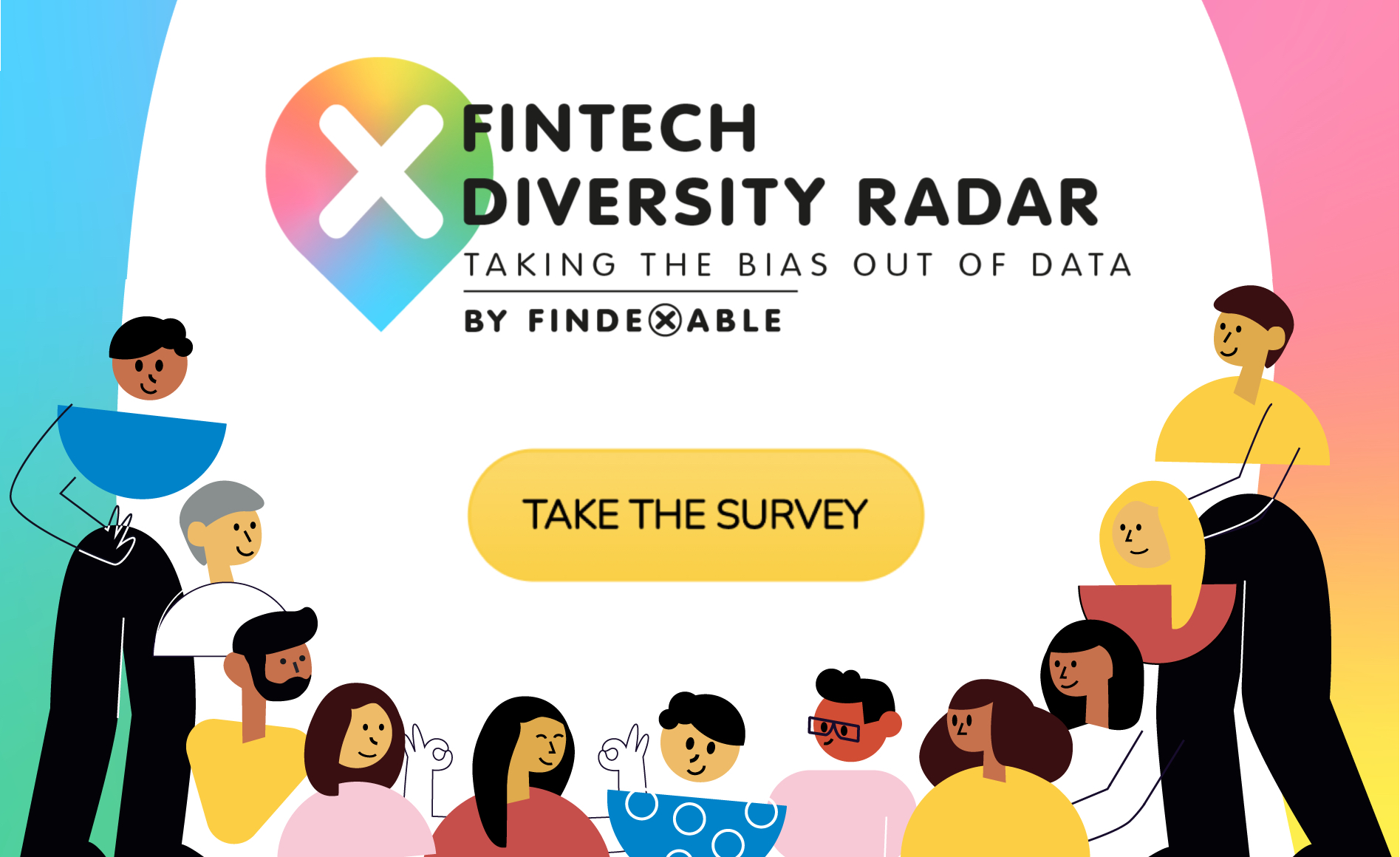Gender equality is inextricably linked to sustainable development. In the finance and fintech industries, the challenges for women and minority groups are evident. We want to think about these challenges and how to improve the situation.
Diversity in the financial sector is crucial
Caroline Criado Perez's book “Invisible women: data bias in a world designed for men” illustrates how the needs of minority groups and women are often overlooked in our technological lives because they are simply overlooked have no place on the design team.
The technology design is by default geared towards the experiences of men and majorities. Often important design features are missing that would benefit other groups. For example, mobile-first launches enable quick access to fintech products in developing countries . Entrepreneurs tend to develop technical solutions according to their own needs. It all depends, according to Criado Perez, “who is allowed to make the invention”.
Hope for the future
The headlines of the latest (2021) Fintech Diversity Radar (FDR ) report on diversity in the fintech industry make a pretty bad impression. However, there is also hope.
The FDR report finds that the number of female executives in the fintech industry is growing faster than in other sectors. This happens especially in the regions where a lack of financial integration and poverty are greatest. These include the Middle East, Africa, and Latin America.
The number of women entering the blockchain and cryptocurrency job market is skyrocketing. This is particularly gratifying when you consider how important this sector is to the future of financial services.
It is the responsibility of the entire technology sector to recognize the benefits of unconventional ideas and promote them in companies. It's also the best way to drive innovation.
Diversity in thinking leads to better results
Fortunately, the industry is increasingly realizing that more needs to be done for inclusion. Here, conferences and events , the best ways to promote inclusive communities.
The WebSummit is an example of an event that is playing a pioneering role with its “ Women in Tech ” ticket. The ticket gives women a special discount and only pays 10% of the price that men pay. With this initiative, the WebSummit succeeded in increasing the proportion of female participants to over 45%.
Data shows that more and more women are investing in cryptocurrencies, but the growing NFT market still appears to be male-dominated. According to Bloomberg , only 5% of all NFT artwork has been sold by female artists in the past two years. However, it has also been suggested that the arts sector in general is heavily male dominated. This may also result in dominance in the NFT arts sector.
Create space for role models in financial technology
Giving minority executives a place on the executive floor and putting their performance in the spotlight is one of the best ways to demonstrate inclusion and encourage greater participation:
Danielle Davis, one of the few artists in the NFT space, runs a website teaching the basics of creating art-based NFT. This makes this medium more accessible for those who are interested.
Maggie Love has worked tirelessly to bring more women closer to decentralized finance. She founded the SheFi educational initiative , a global community of women interested in innovation in the field.
Journalist Leigh Cuen is the co-founder of Des Femmes magazine, which is aimed at women working in technology and finance. Magazines like The Stack also shed light on women who drive innovation in the industry.
Some have even made removing the obstacles their life's work. For example , Priti Rathi Gupta founded LXME , a financial planning and investment platform for women in India. A section of the population that the financial sector has so far completely ignored.
Inclusion in the fintech industry is everyone's job
With men and ethnic majorities currently so strongly represented in demographics, it is clear that there is still much to be done. There is no simple solution, however. But even in a minority, initiatives to promote women and people of color in the fintech industry can help bring more women into leadership positions.
Employers and managers should also consider working with organizations that promote the advancement of minority groups in the technology sector. The Black Women in Blockchain Council (BWBC) is helping to increase the number of black blockchain developers in the industry. The BWBC does this by partnering with organizations to develop online bootcamps. These aim to train half a million black women to be developers by 2030.
Sustainable development depends on equal opportunities in all areas. This is the only way to a healthy global economy.
My Top PicksHoneygain - Passive earner that pays in BTC or PayPalMandalaExchange -The Best no KYC crypto Exchange!
BetFury - Play And Earn BFG for daily Bitcoin and ETH dividends!
Pipeflare - Faucet that pays in ZCash and Matic, Games pay in DAIWomplay - Mobile dApp gaming platform that rewards in EOS and BitcoinCointiply - The #1 Crypto Earning SiteLiteCoinPay -The #1 FaucetPay earner for LitecoinUpland - Collect Digital Properties & Test Your SkillsLBRY/Odysee - YouTube Alternative that lets you earn Money by viewing videos!FaucetPay - The #1 Microwallet PlatformFREEBTC - The #1 FaucetPay earner for Satoshi'sFaucetCrypto - An earning/faucet site that pays out instantlyFireFaucet - An earning site that pays better for some than Cointiply
DogeFaucet - Dogecoin Faucet
xFaucet - BTC, ETH, LTC, Doge, Dash, Tron, DGB, BCH, BNB, ZEC, FEY - Claim every 5 minutes
Konstantinova - BTC, ETH, LTC, Doge, Dash, Tron, DGB, BCH, BNB, ZEC, USDT, FEY, 25 Claims Daily
Disclaimer of liability
All information contained on our website has been researched to the best of our knowledge and belief. The journalistic contributions are for general informational purposes only. Any action that the reader takes based on the information found on our website is entirely at your own risk.


Comments
Post a Comment